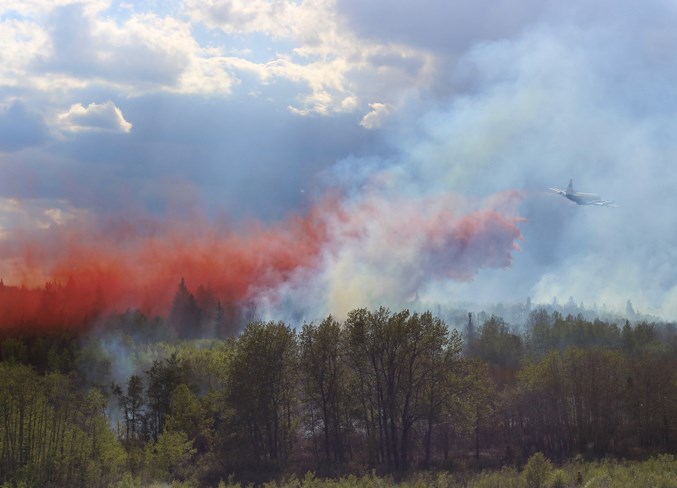With a total of 1,094 wildfires and a record 2,214,957 hectares burned, Alberta’s disastrous 2023 fire season officially ended at the beginning of November. But with fires still smouldering, a dry winter ahead, and businesses yet to catch up on costs and lost time, “it’s not over,” said Darlene Chouinard, president chair of the Edson and District Chamber of Commerce.
“There are still fires burning underground. We're surrounded by muskeg. There have been pop-up fires sporadically, right up until only a couple of weeks ago,” Chouinard said.
“And with the with the prediction of having a very dry winter, we've had very little moisture so far this season . . . the fear is very real. And it’s ongoing.”
Alberta Wildfire reported that 48 communities were affected by the wildfires this year, and more than 38,000 people were displaced. Edson was evacuated twice this summer, and the personal and financial costs to the local business community started racking up even before the evacuation notice was given.
“Some members of our community were working until like five o'clock when they knew that we were going to be evacuated by six,” Chouinard said. “If you worked at a bank or a gas station, for example, you didn't have all afternoon to pack up your stuff like some others did.
“Businesses were forced to lock up an unknown long term. In our second evacuation, power was lost, and water was shut off. So, anything perishable had to be disposed of. There was a huge cost there, and there was no reimbursement to the businesses per se for any of that.”
Some of those costs could be recouped through private insurance, but there is no coverage for the revenue lost for the weeks businesses were closed, she said. Chouinard also expects insurance rates for businesses in the region will go up given the wildfire situation.
Research from KPMG found that half of small and medium businesses in Alberta were directly affected by wildfires in 2023, and 38 per cent of businesses said their insurance was either cancelled or insurance costs increased significantly. Declines in revenue due to impacts on customers and lost tourism were also commonly reported impacts.
ATCO Electric is still working to catch up with the substantial backlogs created by the wildfire, VP of Operations Amanda Mattern said. About 450 employees were diverted to emergency responses over the summer, and the company had to replace thousands of power distribution and transmission poles damaged by the fires.
“This has been an unprecedented fire season for us, we had over 10,000 of our customers impacted at various times throughout the fire season. Thirty-five of our own employees were evacuated, so that added its own challenges to our response efforts,” Mattern said.
Mattern said ATCO is starting to get back on track with projects that were shut down because of the fires, and anticipates the company will be fully caught up by the first quarter of 2024. “But it did impact our day-to-day operations when we had such a massive response.”
Supply chain issues were a major business problem even before the fires, but through strong relationships with vendors and other utility operators in unaffected areas “we were able to beg borrow and steal, if you will, to make sure that we have all the resources and material for the response and to continue on with our regular day to day operations,” Mattern said.
It was this type of mutual support from neighbouring communities that helped keep Edsonites afloat this summer as well. When the entire town of Edson was forced to leave, surrounding towns like Jasper, Whitecourt, and Hinton stepped up to support the evacuees, Chouinard said.
“Small town Alberta is taking care of its own,” she said.
“They looked after us. A lot of people stepped up and donated, brought muffins and coffee, brought people water for their tanks, or gas for their generators. And we were everywhere, all the way around west-central Alberta.”



